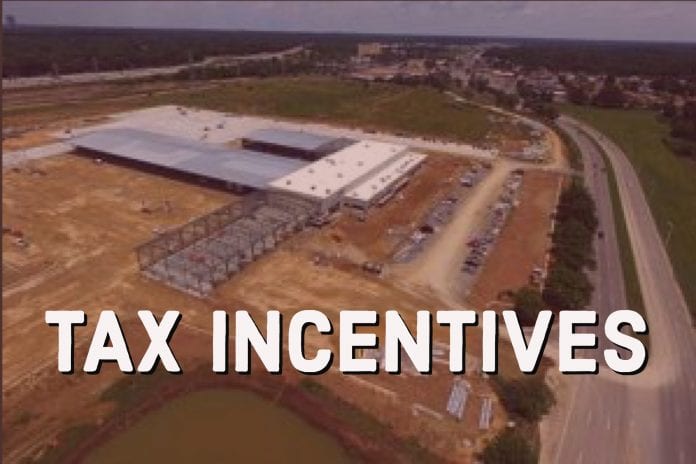 By Joe B. Kent, Special to The New Tri-State Defender
By Joe B. Kent, Special to The New Tri-State Defender
Local media outlets, on occasion, attempt to check the box of public education when it comes to the complex and controversial issue of tax incentives by publishing various forms of reporting and opinion. But, in most cases such publications fall short in providing a balanced view of incentives generally with a slant toward the pro-incentive view of the local establishment.
Incentive reform is needed in Memphis to help correct local imbalances and the local media is doing little to help the public navigate a complex topic while publishing incomplete facts. This practice mirrors in many ways the incomplete accounting of the Economic Development Growth Engine (EDGE) retention payment-in-lieu of taxes program.
A local reader might see formal definitions of incentives reported without examples. Or, a media outlet might publish a piece that includes a select group of incentives that can be defended while being a “rebel” of sorts in the local establishment media complex and stating something like “ but questions regarding incentives remain.”
This type of reporting leaves taxpayers hanging without a more complete view of the facts in a community that has nine authorized tax abatement boards that operate under the authority of local government.
The story that is not locally told involves numerous facts that effectively tip the scale in favor of incentive reform. Below are some facts that if accompanied with reporting on beneficial economic development incentives could help better educate the public on tax incentives while documenting the need for incentive reform:
Incentive facts
Fact: Regardless what anyone may say, tax incentives have the same value as cash payments.
Fact: Different and individual projection accounting methodologies are required each for new job expansion and existing job retention PILOTs (payments in lieu of taxes). Retention PILOTs are those PILOTs that award tax incentives to companies for jobs that currently exist while allowing corporations to pay lower taxes and real estate investors to lock in long term commercial leases. Retention PILOTs are awarded based on a company’s departure threat.
Fact: EDGE (Economic Development Growth Engine) uses the same accounting methodology for expansion and retention PILOTs, which is problematic with the accounting methodology used by EDGE for retention PILOTs being incomplete.
Fact: Based on reviews of two entities in Beacon Center of Tennessee and MCCL Measured, using their respective complete accounting methodologies, it is estimated that EDGE revenue overstatements range from $759M to $917M for retention PILOTs.
Fact: When EDGE overstatements are adopted using the complete accounting methodologies above, estimated taxpayer losses range from $95M to $253M and not a $664M gain as claimed by EDGE for retention PILOTs.
Fact: Small business vitality in Memphis plummeted after the introduction of retention PILOTs that serve primarily corporate/real estate interests. Plummeting small business vitality can be shown to result in 14K fewer jobs, $700K in total wage shortfalls and $20M in Memphis/Shelby tax revenue shortfalls since retention PILOTs began.
Fact: Baseless and ungrounded assumptions are used in tax incentive applications such as the 7,000 job creation claim found in the Poplar Corridor TIF (page 3). The Poplar TIF restricts future local government expenditures from tax revenue gains to one of the most affluent areas of the City while other more distressed areas of the City suffer without needed community investments.
Fact: Tax abatement boards don’t follow their own rules in awarding tax incentives. Examples include EDGE – Electrolux, EDGE – Mark Anthony and Downtown Memphis Commission (DMC) – FedEx.
Fact: Shelby County is the only county in the State of Tennessee that awards residential PILOTs.
Fact: In the implementation of the Broad and Thrive residential PILOTs, developers were afforded $19M more in abatements than they would have received in any other county in Tennessee and developers walked away with nearly twice as much as the Memphis/Shelby net taxpayer benefit.
Fact: Incentive awards for the same project are now being awarded by multiple abating boards in EDGE and Downtown Memphis Commission (DMC). This will likely make incentive award evaluation more complicated for the general public.
Fact: The Economic Institute published a study that in effect concluded that only direct revenue from lower wage warehousing projects should be considered for tax revenue projections and economic multipliers should not be used in projecting tax revenue. Economic multipliers attribute increased tax revenue projections for jobs beyond those directly employed from the PILOT project. If this study were applied to the Amazon PILOT, projected tax revenue would drop from $37 million to $19 million.
Fact: The Shelby County Commission has yet to schedule a review of all abating boards as stated in their resolution passed in December 2018. (Read the resolution at https://bit.ly/2FkItNU.)
If the above facts were published along with favorable tax incentive reporting, taxpayers would have a more complete view from which to evaluate incentives.
In the complex case of tax incentives, the local media has a vital role to play in educating the public. Should this education occur, the media can help facilitate a needed discussion and debate on incentive reform that can potentially go to correct significant imbalances that exist in the Memphis community.
(Joe B. Kent is a career pathways consultant and activist.)



